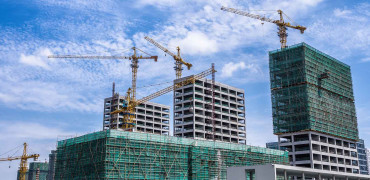As the need for sustainability to be at the core of businesses grows, globally aligned goals and targets become imperative. This is where the 2015 Sustainable Development Goals (SDGs), established by the United Nations, come into play.
SDGs are a set of 17 global goals that call for action to end poverty, protect the planet, and ensure prosperity for all by 2030. With that deadline rapidly approaching, it is critical that all businesses and individuals alike take every possible step to work towards the SDGs.
The 17 goals address a variety of interconnected issues, including affordable and clean energy, sustainable cities and communities, responsible consumption and production, climate action and zero hunger.
Although all of these goals appear daunting when listed together, breaking them down and setting manageable targets and using the SDGs as a blueprint is the best way to start working towards a more sustainable future.
SDG’s are not the first attempt at the setting of global goals. Between 2000 and 2015, the Millennium Development Goals (MDGs) provided an important development framework and achieved success in a number of areas such as reducing poverty and improving health and education in developing countries. The SDGs were modelled in a similar way, in the hope that the same level of success will be achieved.
We have developed products that push the boundaries of energy efficiency
What impact do SDG’s have?
As intended, SDGs have significant impact on both the environment and businesses, the first of which being positive business opportunities. The SDGs present numerous opportunities for businesses to innovate, develop sustainable products and services, and tap into new markets.
For example, investing in clean energy technologies (Goal 7) or sustainable infrastructure (Goal 9) can generate new revenue streams and boost competitiveness. Furthermore, meeting consumer-driven demand for sustainable goods and services can result in market differentiation and brand loyalty.
The SDGs also have a positive environmental impact. Many of the SDGs directly address environmental issues, including climate change (Goal 13), life below water (Goal 14), and life on land (Goal 15). The SDGs seek to reduce environmental degradation, conserve natural resources, and protect ecosystems by promoting sustainable practices and responsible consumption and production (Goal 12). This can lead to improved air and water quality, biodiversity conservation, and the preservation of natural habitats.
Regulatory compliance and risk management is another impact to consider when looking at SDGs. Globally, governments are increasingly coordinating their laws and policies with the SDGs. Businesses that integrate sustainable practices into their operations can ensure compliance with shifting environmental standards and mitigate regulatory risks. On the other hand, businesses that ignore sustainability issues risk operational disruptions, legal liabilities, and a tarnished reputation.
Sustainable development goals such as responsible consumption and production (Goal 12) and decent work and economic growth (Goal 8) place significant emphasis on supply chain transparency, ethical labour practices, and social responsibility. Businesses that prioritise sustainability throughout their supply chains can improve resilience, reduce risks from resource scarcity or labour violations, and strengthen relationships with suppliers and stakeholders.
In summary, the SDGs provide a framework for businesses to address environmental challenges, recognise new opportunities, and contribute to sustainable development while also mitigating risks, increasing resilience, and gaining access to investment and financing opportunities. Businesses that align their strategies and operations with the SDGs can achieve positive environmental outcomes while also creating long-term value for society and shareholders.
How can we help your business make progress towards SDG’s?
We are working to build a low-carbon, energy-efficient, and recycling-based society. We intend to accomplish this by utilising a diverse range of technologies to reduce the carbon footprint of the built environment, as well as assisting our customers in doing the same. This is strongly aligned with progress towards a number of the SDGs.
We have developed products that push the boundaries of energy efficiency for building services equipment which can help other businesses also start to make progress towards SDGs. Our Research & Development team is at the cutting edge of applying low-GWP refrigerants in chillers; and we introduced the City Multi Hybrid VRF system that removes the requirement for leak detection in occupied spaces.
Our heat pumps for homes and commercial buildings lead the way in efficiency. Our Ecodan QAHV heat pumps can produce hot water to 90 degrees, removing the need to rely on fossil fuel based/gas boiler systems, even in high-demand buildings such as university accommodation.
For more information on the above products, as well as hundreds of others which could support your business in taking steps towards SDG’s please visit out website.
Sian Bird is a marketing graduate



